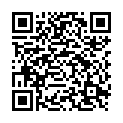|
|
|
| Module code: FT57 |
|
|
2V+1U (3 hours per week) |
|
3 |
| Semester: 6 |
| Mandatory course: no |
Language of instruction:
German |
Assessment:
Written exam
[updated 30.09.2020]
|
FT57 (P241-0155, P241-0310) Automotive Engineering, Bachelor, ASPO 01.10.2011
, semester 6, optional course
FT57 (P241-0155, P241-0310) Automotive Engineering, Bachelor, ASPO 01.04.2016
, semester 6, optional course
FT57 (P241-0155, P241-0310) Automotive Engineering, Bachelor, ASPO 01.10.2019
, semester 6, optional course
MAB.4.2.4.7 (P241-0155) Mechanical and Process Engineering, Bachelor, ASPO 01.10.2013
, optional course, technical
|
45 class hours (= 33.75 clock hours) over a 15-week period.
The total student study time is 90 hours (equivalent to 3 ECTS credits).
There are therefore 56.25 hours available for class preparation and follow-up work and exam preparation.
|
Recommended prerequisites (modules):
None.
|
Recommended as prerequisite for:
|
Module coordinator:
Prof. Dr.-Ing. Rüdiger Tiemann |
Lecturer:
N.N.
[updated 16.12.2013]
|
Learning outcomes:
After successfully completing this part of the module, students will have an overview of the technology and driving dynamics of motorcycles and be able to understand and analyze the application and design of individual motocycle components and assemblies according to the state of the art. This includes wheel-tire combinations, spring elements, brake systems, frame constructions, the motorcycle fork, electrical chassis control systems, as well as the drive train and drive unit.
Students will be able to name and evaluate driving dynamic parameters of motorcycles and to qualitatively assess their effects on the driving behavior of the motorcycles.
They will have gained insight into road tests, chassis dynamometers, as well as simulation programs that are used in the motorcycle development process.
Students will be familiar with the most important development tools used for the development of motorcycles and will be able to carry out or call for specific development steps in their later professional engineering career.
[updated 30.09.2020]
|
Module content:
Motorcycle market, chassis geometry, longitudinal dynamics, tires, rims, driving stability, lateral dynamics, spring/damper elements, suspension strut linkage, drive systems, brakes, traction control, forks, all-wheel drive systems, frame, vertical dynamics, simulation and test bench, measurement technology in road tests, ergonomics, aerodynamics, engines
[updated 30.09.2020]
|
Teaching methods/Media:
Seminaristic lecture with lecture notes
Experiements related to specific questions
[updated 30.09.2020]
|
Recommended or required reading:
Motorradtechnik _ Jürgen Stoffregen, ISBN 978-3834817167
Motorcycle Dynamics (Second Edition) - Vittore Cossalter, ISBN 978-1430308614
Motorcycle Handling And Chassis Design - Tony Foale, ISBN 84-933286-3-4
Radführungen der Straßenfahrzeuge _ Wolfgang Matschinsky, ISBN 978-3-540-71196-4
Development Trends of Motorcycles I - IV _ Stan Cornel, ISBN 978-3816925491
Fahrwerkstuning für Motorräder _ John Robinson, ISBN 978-3613014435
Motorcycle Design and Technology _ Gaetano Cocco, ISBN 978-8879113441
Fortschrittliche Motorradtechnik _ Helmut Werner Bönsch, ISBN 3-613-01054-2
[updated 30.09.2020]
|


